Brené Brown

Brené Brown is a research professor at the University of Houston, where she holds the Huffington Foundation Endowed Chair at the Graduate College of Social Work. Brown also teaches management at the University of Texas at Austin McCombs School of Business.
Brown studies courage, vulnerability, shame, and empathy; is the author of six #1 New York Times bestsellers; and is the host of the weekly Spotify original podcasts Unlocking Us and Dare to Lead.
1. Brené Brown’s Key Findings and Messages
- Vulnerability is not a weakness but a strength.
- Integrity is choosing courage over comfort.
- You should seek, not avoid, honest exchange with others – and those who think differently.
- Workplaces where there is psychological safety are places where people can grow.
2. Why Do They Matter?
Brown studies how the willingness to be vulnerable leads to better, more authentic connections between people and is an essential, though underrated quality of leadership. To be vulnerable takes self-awareness and courage, but it’s the first step to taking responsibility for your actions and your future. Admitting mistakes and shortcomings requires a space of psychological safety, whether in your own life or within communities, but the rewards are greater senses of belonging, empathy, love and trust.
3. To Understand Brown’s Work, Start Here
Her first TED Talk in June 2010, “The Power of Vulnerability,” catapulted Brown into the spotlight. It is among the top five most-viewed TED Talks of all time:
Highlights:
- Wholehearted people embrace vulnerability.
- Human connection comes from authenticity via courage and vulnerability.
4. Practical and Quick Insight: Her Podcasts
Brown hosts two podcast series, Unlocking Us and Dare to Lead, where she focuses on ways people can have more authentic connections with their family, friends and co-workers, and lead with wholeheartedness. Find out more about vulnerability – and why it’s so important – in our summaries from some of those conversations:

Reverse Mentoring with Patrice Gordon
Dare to Lead Podcast with Brené Brown- Reverse mentoring is a management practice in which a senior employee seeks leadership insights from a junior staff member.
- Virgin Atlantic’s reverse mentoring pilot program was so successful, HR incorporated it into its people strategy.
- A psychologically safe work environment is responsible for 90% of a reverse mentoring program’s success.
- Reverse mentoring can be a powerful tool to ease intergenerational conflicts and tensions.
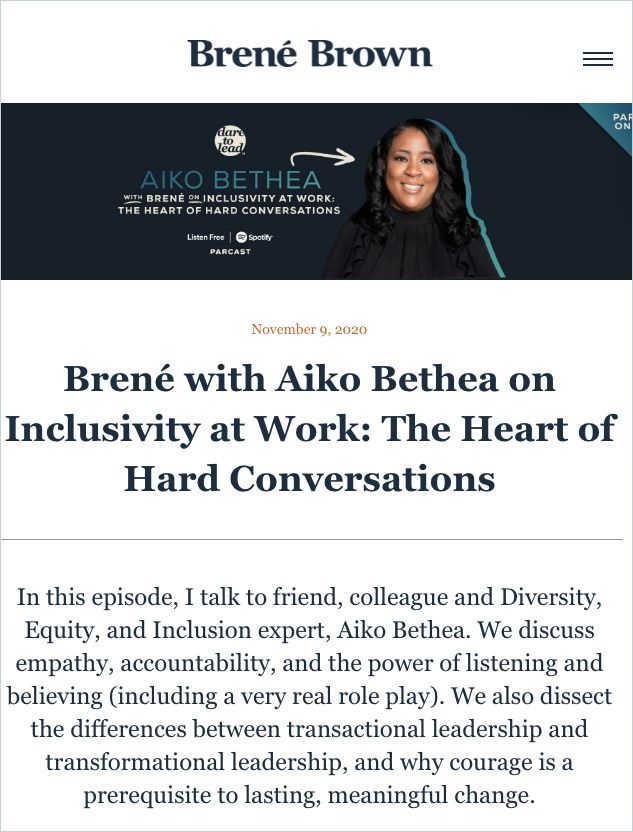
Inclusivity at Work: The Heart of Hard Conversations
Dare to Lead by Spotify Originals- To make meaningful progress, workplaces need to embrace a shared definition of diversity, equity and inclusion.
- Compliance drives transactional change, which often causes resentment. Only transformational change is relational, sustainable and capable of shifting culture.
- Deep transformative work often requires painful introspection, which can lead to feelings of loss and grief.
- Companies trying to undertake transformational change must be wary of action bias.
There is nothing more vulnerable than creativity.
Brené Brown

- No employee can do their best work until every employee feels safe at work – and DEI is central to creating a universal sense of psychological safety.
- DEI initiatives must be well planned and ongoing – otherwise, they risk worsening workplace tensions.
- DEI work cannot be successful unless it addresses the root causes of disparity.
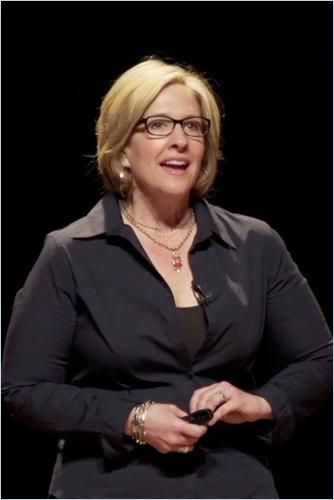
- Creatives have a heightened susceptibility to vulnerability as public exposure – “showing up and being seen” – is embedded in the nature of their work.
- Buffer yourself from your haters by taking the stance that unless your critics also are exposing themselves and exhibiting vulnerability, their opinions are irrelevant.
- Many creatives “armor up” emotionally and psychologically against vulnerability. Alas, such armor is impervious to the positive by-products of exposure, including “love, joy, belonging, trust, empathy, creativity and innovation.”
- Ignoring your critics impinges on your capacity to connect and be vulnerable.
- Realize that you are your own worst critic. Don’t let your inhibitions consume you.
Vulnerability…is not about winning; it’s not about losing. It’s about showing up and being seen.
Brené Brown
5. Evaluate the Details: Brown’s Books
Brown’s books – like Daring Greatly or Dare to Lead – sell extremely well; her mix of compassion and scientific facts strikes a chord. Find out what’s inside Brené Brown’s best-selling books!
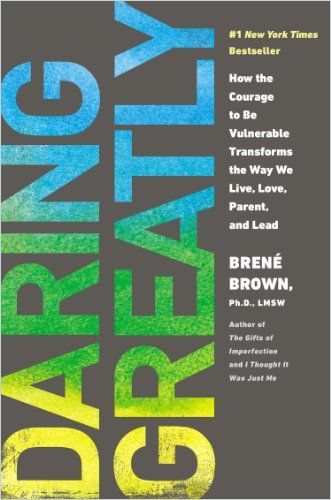
- People often act out a terror of being ordinary that has its roots in shame.
- People have trouble accepting that anyone recognizes their uniqueness, and that this isolation leads to a plague of self-loathing.
- Brown advocates for the healing power of love.
- To make it work, you must escape shame, which destroys love.
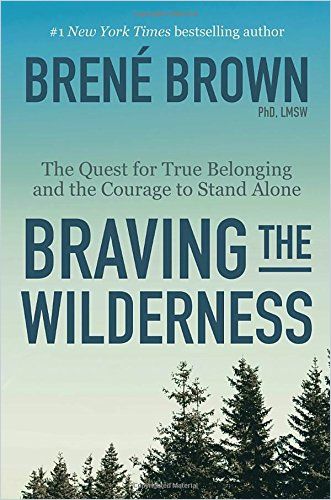
- Not belonging is painful, particularly when people feel that they don’t belong to their own families.
- Seemingly small events take on massive importance in life.
- Trivializing your own pain by dismissing your injuries makes you less capable of empathizing with others. Instead, accept yourself as valuable.
- Experiencing true belonging means sharing your authentic self. You need contact with people who disagree with you.
- Shared experiences reaffirm each individual’s belief in connection and heal spiritual crises.
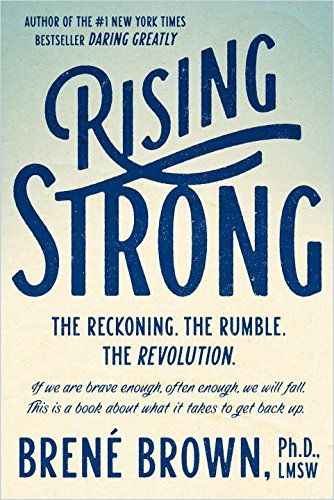
- Being emotionally honest and vulnerable and facing your mistakes and shortcomings bravely and without self-blame will bring wisdom and personal evolution.
- Practicing this candid openness will enhance your ability to connect to people, to love and to accept love.
- Coping with blunders and “facing hurt” starts with embracing what you feel, not denying it.
- Wrestle or “rumble” with the stories you create about your struggles.
- To come back from hurtful or chaotic situations and thrive again, weave what you’ve learned into your daily activities.
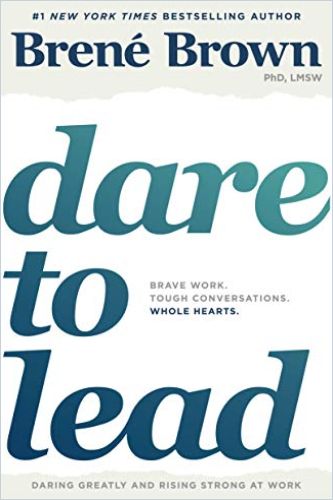
- Daring leadership comes from a place of courage, heart and confidence.
- You must commit to looking within yourself and initiating tough conversations with your colleagues and co-workers.
- Stepping into the arena and taking on a challenge when the outcome is uncertain exemplifies vulnerability – not a weakness, but a show of strength.
- One can learn the skills and behaviors of daring leadership at any point in your career.
You either walk inside your story and own it or you stand outside your story and hustle for your worthiness.
Brené Brown
6. Additional Resources by Topic
- Feedback – Are you ready to give and receive it? Try Brown’s Engaged Feedback Checklist.
- Perfectionism – Brown on the courage to leave it behind: “Do the best work you can and find the courage to put your work out there and know that, no matter what you do, some people are going to like it and some people aren’t. All you can really control is how you feel about what you’ve contributed…People will find a million reasons to tear it down, so you have to be really sure about what you’re doing, because in the end, if you believe in it that’s enough.”
- Vulnerable is not weak – According to Brown, struggles make us who we are. She defines vulnerability as emotional risk, exposure, uncertainty – things that “fuel our daily lives.” She even thinks that “vulnerability is our most accurate measurement of courage.” Find out more in her second TED talk:
- Wholehearted living – For Brown, this concept of living relies on courage, compassion and connection. Find out more in her short CBS talk.
- Trust – The acronym B-R-A-V-I-N-G serves as a helpful checklist when rumbling with trust issues. The seven elements of trust, according to Brown, are: Boundaries, Reliability, Accountability, Vault, Integrity aNd Generosity. For more insights, watch her “Anatomy of Trust” video.
- Acronyms – Looking for more? Find Brown’s Dare to Lead Glossary here.
- Authors who have similar ideas and represent the same values:
My philosophy is, I don’t think the playground is safe if anyone’s getting beat up on it – even if it’s not me.
Brené Brown
7. Deep Dive: Psychological Safety in the Workplace
Find out more about Brown’s main topic in our related Journal articles:
About Our Thought Leader Profiles
Biographies can be found on Wikipedia. What you find here are instant practical insights into the thinking of important contemporaries. With the necessary references to the summaries of their works at getAbstract, of course.







